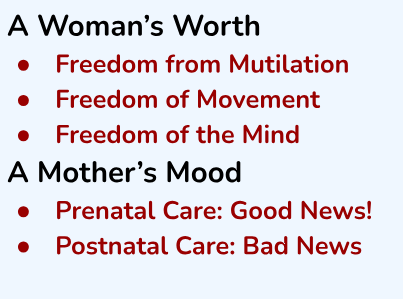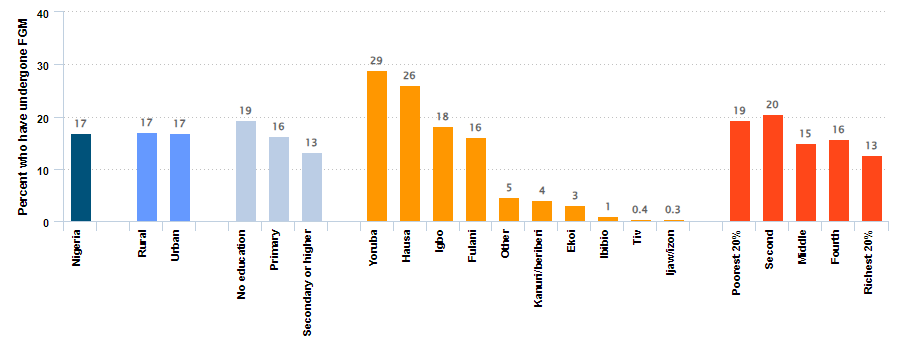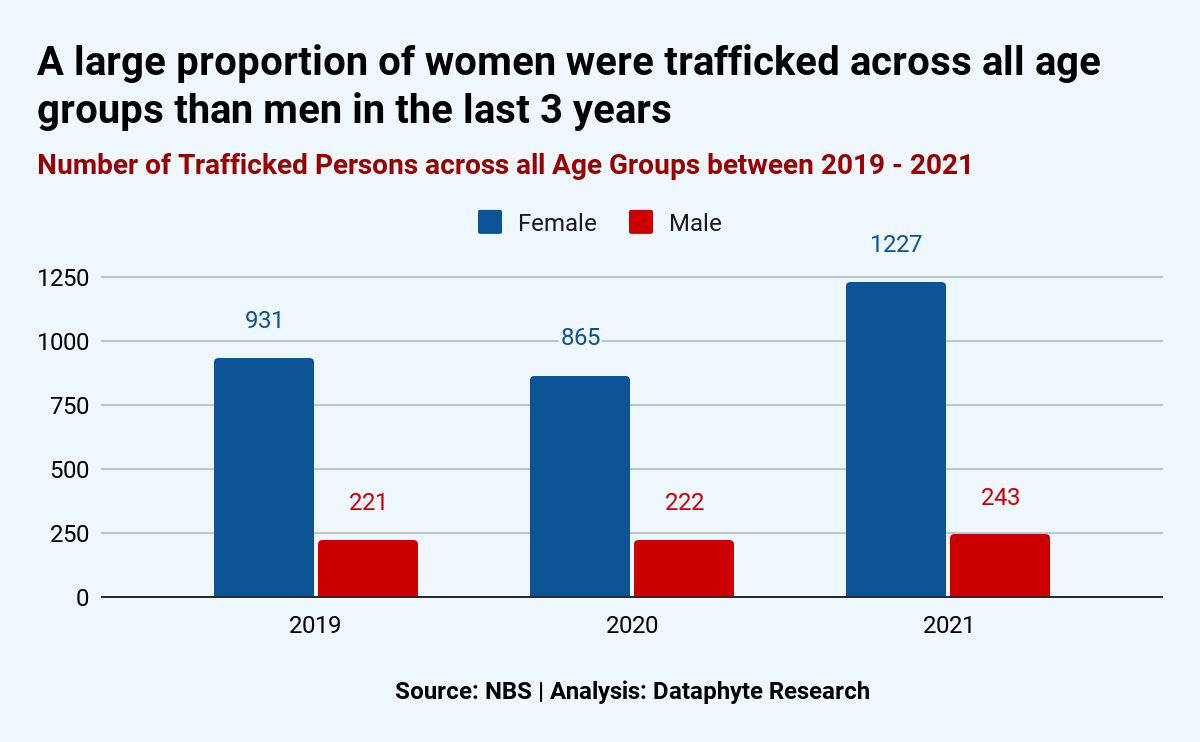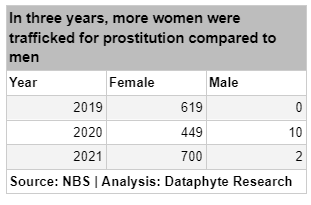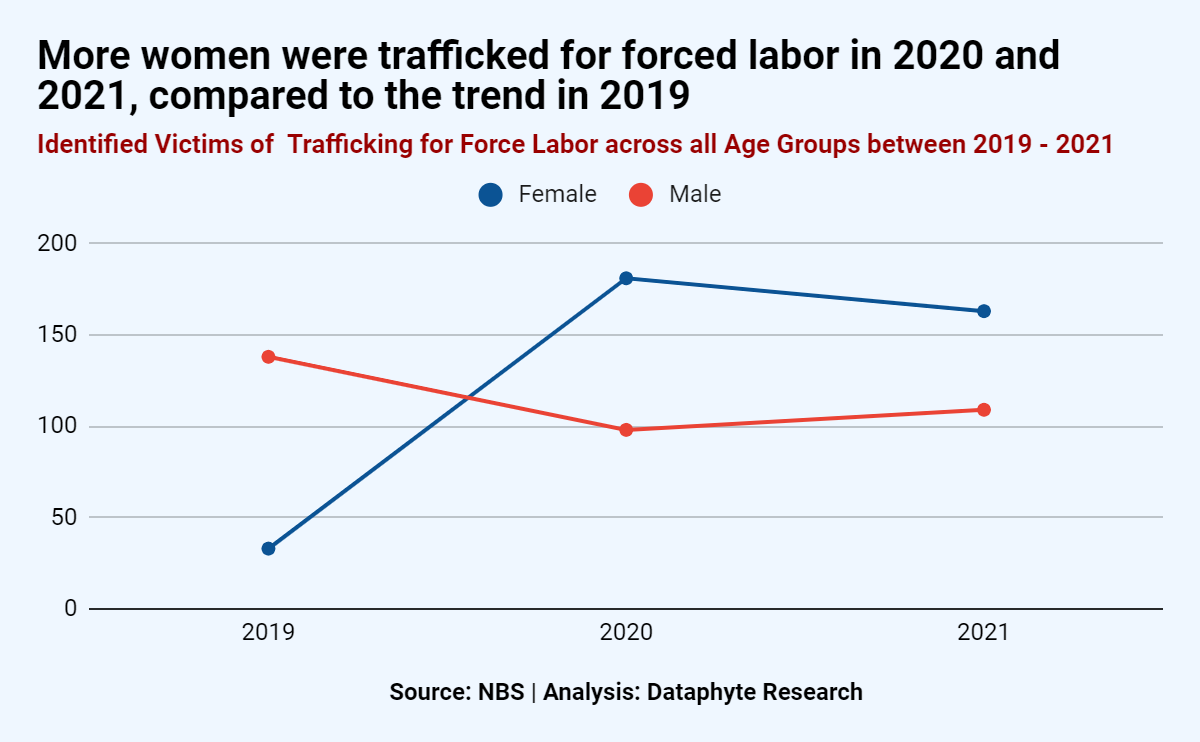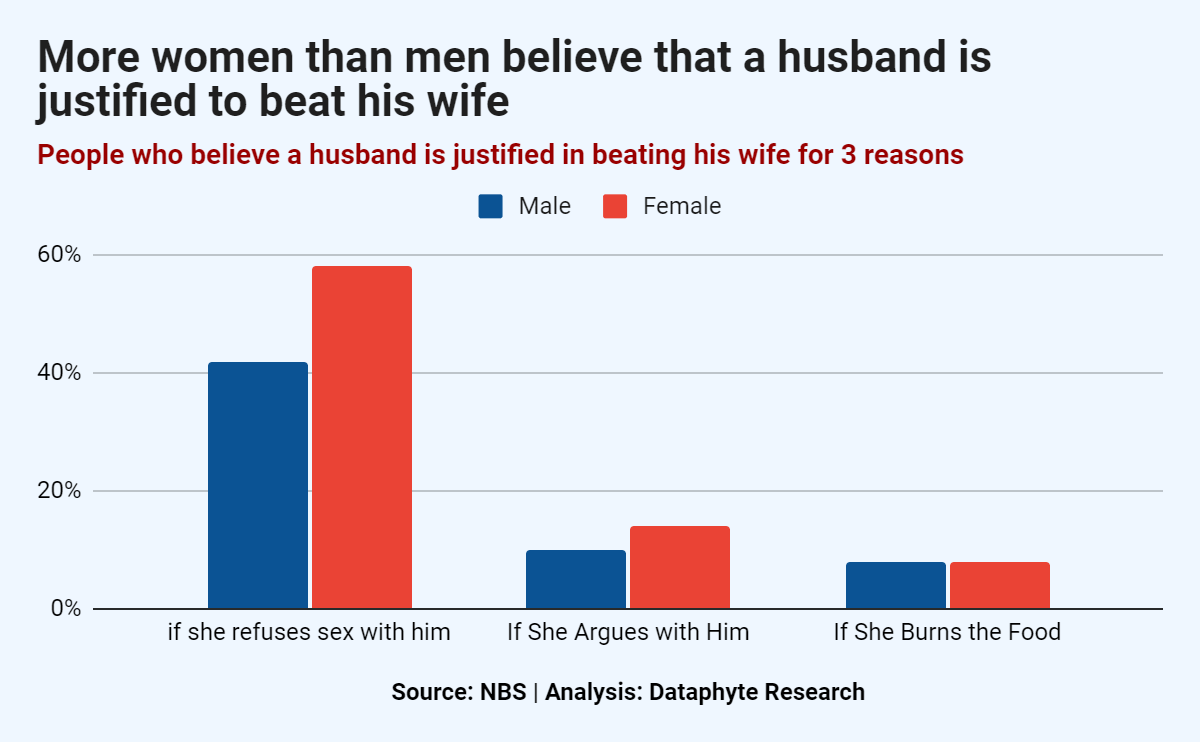A Woman’s Worth
Yesterday was the International Day of Zero Tolerance for Female Genital Mutilation (FGM).
FGM has become a global concern because of the attendant deaths. Then there are the physical struggles and mental scars on girls and women who are lucky to survive the common complications from the crude and unhealthy procedure.
Mutilating a baby girl’s genitals or an older female’s could be the first minus to that Woman’s Worth.
Nigeria is far from the zero prevalence mark, but some subnational governments and other stakeholders are making progress in eradicating FGM through behavioural change communications and legal prohibitions against the practice.
According to Lagos, Osun, Ondo, Ekiti, Bayelsa, Ogun, Delta, Ebonyi, Oyo, Imo, Edo, Cross River, and Rivers States have laws with varying degrees of deterrence against the act.
Despite the increased education on and prohibitions against the practice, FGM remains prevalent, highlighting the ongoing challenges in enforcement. Top of these challenges is that there is no federal law banning FGM in Nigeria yet.
“The Violence Against Persons (Prohibition) Act, 2015 (the VAPP Act), which came into force on 25 May 2015, is the first federal law attempting to prohibit FGM across the whole country. The VAPP Act aims to eliminate gender-based violence in private and public life by criminalising and setting out the punishment for acts including rape (but not spousal rape), incest, domestic violence, stalking, harmful traditional practices and FGM.
“The VAPP Act, as a federal law, is only effective in the Federal Capital Territory of Abuja, and, as such, the remaining states must pass mirroring legislation to prohibit FGM across the country,” a document on the UNHCR website read.
Freedom from Mutilation
In 2022, UNICEF noted that Nigeria accounts for the third highest number of women and girls who have undergone Female Genital Mutilation (FGM) worldwide, with an estimated 19.9 million survivors.
However, the 2018 Nigerian Demographic Health Survey (NDHS) report indicates that the prevalence among women aged 15-49 has decreased since 1999.
Analysis shows that Nigeria recorded the highest prevalence of Female Genital Mutilation in 2008, with 29.6%. This declined from 29.6% in 2008 to 19.5% in 2018.
Will this positive decline continue?
Hopefully. With concerted efforts on the parts of the country and cultures where the crime is prevalent.
According to the Demographic Health Survey 2013, 17% of girls’ genitals were mutilated. There is an equal prevalence of Female Genital Mutilation in both rural and urban areas where 17% of girls have suffer from genital mutilation.
Additionally, FGM is prevalent in households with no form of education with 19% prevalence, compared to 16% and 13% in households with primary and secondary/higher education.
Culturally, the Yorubas have the highest prevalence of female genital mutilation in Nigeria, mutilating 19% of girls born to Yoruba parents.
Prevalence of FGM among young girls, by residence, education of mothers, ethnic group and wealth index (%)
Source: United Nations Population Fund
The Hausa ethnic group has the second highest prevalence of 26%, and the Igbo, 18%.
The prevalence of Female Genital Mutilation also varies by social status. The highest prevalence of 20% is seen among the poorest and 13% among the richest.
Freedom of Movement
The assault on a woman’s worth continues with the plundering of their comparatively vulnerable physiques for money.
An analysis of the NBS Statistics on Men and Women in Nigeria shows that more women are trafficked for forced labour and prostitution than men.
Trafficked women, and men, are robbed of their rights to move at their own will away from jobs or places where they are coerced into forced, and oftentimes, hazardous, labour.
Between 2019 and 2021, a larger proportion of women in Nigeria were victims of trafficking than men. In 2021, 1227 women were trafficked. This is the highest in the reviewed years.
Additionally, a larger proportion of victims trafficked for prostitution were women. The number of women trafficked for prostitution in 2022 is 700 compared to only 2 men in the same period.
In 2019, more men were trafficked for forced labour than women, however, the trend in 2020 and 2021 shows women are now trafficked for forced labour than men.
The gender disparity between women and men trafficked across various categories, particularly trafficking for prostitution, raises questions about whether these trends are mere coincidence or indicative of deeper systemic issues.
Human trafficking is a criminal activity that involves the trade and exploitation of individuals for financial gain.
Traffickers employ various methods such as violence, deceitful job offers, and false promises of education to manipulate and exploit their victims.
Freedom of the Mind
The most limiting of all assaults on a woman’s worth is her miseducation to think and act against herself.
While gender-based violence is on the increase, it’s surprising, and sad, that women encourage it more than men.
According to data from the World Bank, 28% of women believe that a husband is justified in beating his wife for reasons such as arguing with him, burning food, going out without informing him, neglecting children, or refusing sex.
Do you find these reasons justifiable as well, or do you consider them as mere excuses for abuse?
Like the higher incidences of female genital mutilation among people with no formal education and those with only primary education, self-limiting gender beliefs are more common among women without the liberating power of a sound education.
Everyone needs to be free from self-harm. Every woman needs the freedom of the mind.
A wholesome formal education of the girl child is the beginning of this freedom.
A Mother’s Mood
Aside from the excruciating pains of childbirth and all that comes in between, women, during and after pregnancy, experience a series of body and hormonal changes that sometimes pose a threat to their mental health.
Globally, approximately 10% of pregnant women and 13% of recently delivered mothers encounter a mental health condition, primarily depression.
The prevalence is higher in developing countries, 15.6% during pregnancy and 19.8% postpartum.
In severe cases, mothers may experience such intense distress that suicidal thoughts arise.
Moreover, these affected mothers are still saddled with domestic chores besides the task of nursing the newborn and caring for the other children. This stretches the expectant or nursing mother, furthering the risk of depression.
Some ways to reduce the risk of depression in expectant and nursing mothers are through ante-natal and postnatal care.
Prenatal Care: Good News!
Analysis of antenatal care for pregnant women in Nigeria shows fair progress in 2018, even though there is room for improvement.
The NBS 2017 and 2018 Statistical Report on Men and Women in Nigeria revealed that 62% of pregnant women had 4 or more antenatal visits, an improvement over 59% in 2016/17.
Postnatal Care: Bad News
Meanwhile, there is no record of data on the percentage of pregnant women who received postnatal care after delivery in the aforementioned official data sources.
Yet, postnatal care for women is crucial for addressing the physical changes and emotional shifts that occur after childbirth.
The WHO guidelines on Postnatal Care for Mothers and Newborns (2013) recommended that mothers and newborns should stay in the facility/home for a minimum of 24 hours after birth. Additionally, at least three other postnatal contacts are recommended for all mothers and newborns on day 3 (48–72 hours), between days 7–14, and six weeks after birth.
Globally, about 40% of women do not receive postnatal visits and only less than half of women receive care within 24 hours of birth, a study by Nature Journal noted.
“The need for quality maternity and newborn care does not stop once a baby is born, indeed, the birth of a baby is a life-changing moment, one that is bound by love, hope and excitement, but it can also cause unprecedented stress and anxiety. Parents need strong health care and support systems, especially women, whose needs are too often neglected when the baby comes,” Dr Anshu Banerjee, Director of Maternal, Newborn, Child and Adolescent Health and Ageing at WHO, noted.
We hope Nigeria begins to journal progress or otherwise of post-natal care for mothers. Those who struggle with post-partum depression can find some relief.
SenorRita Wonders 🤔
Does the NBS also gather data on people who believe that a wife is justified to beat her husband if he refuses sex with her, argues with her, or burns the food? Just asking for someone.
This edition of SenorRita was composed by Funmilayo Babatunde.



